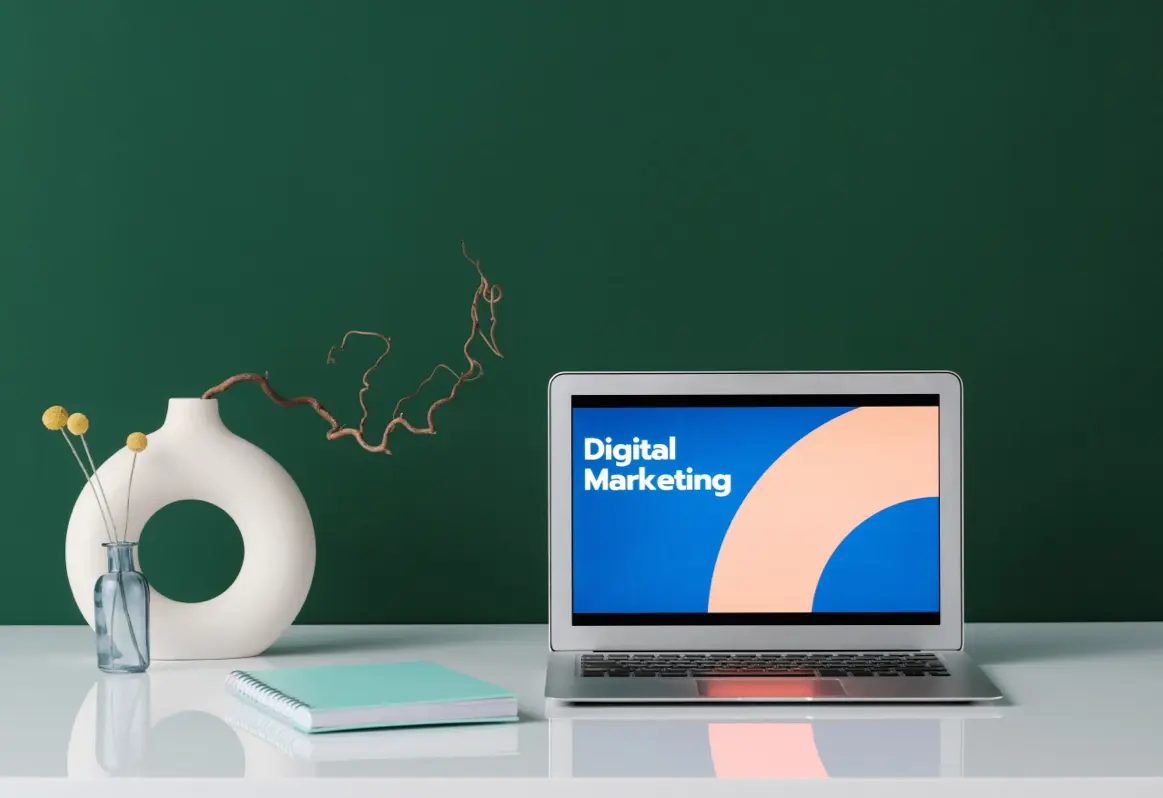Digital Marketing Driving Business Growth

Digital Marketing Driving Business Growth
Key Strategies for Success:
In today’s rapidly evolving digital landscape, businesses need to stay ahead of the curve to remain competitive. One of the most effective ways to achieve this is through digital marketing, a powerful tool that has transformed the way companies engage with their audience, build brand awareness, and drive business growth. Whether you are a startup or a well-established company, leveraging digital marketing can help you scale your operations, reach new customers, and significantly improve your bottom line.
This blog will explore how digital marketing drives business growth and the essential strategies businesses need to implement to succeed in the modern marketplace.
1. Building Brand Awareness Through Digital Channels
One of the most significant advantages of digital marketing is the ability to reach a global audience. Unlike traditional forms of advertising, digital platforms allow businesses to connect with potential customers across different geographic locations and demographics. The variety of digital channels—from social media to search engines—gives businesses numerous opportunities to increase brand visibility.
Key Strategies to Build Brand Awareness:
- Social Media Marketing: Platforms like Facebook, Instagram, LinkedIn, and Twitter allow businesses to engage directly with their audience through posts, ads, and stories. A well-planned social media strategy helps to increase followers, build relationships, and expand brand reach.
- Content Marketing: Creating valuable and engaging content, such as blog posts, infographics, and videos, helps to attract and educate your target audience. Content marketing also enhances SEO and positions your brand as an authority in your industry.
- Influencer Partnerships: Collaborating with influencers or brand ambassadors who align with your business values helps expand your reach to their followers, enhancing your credibility and trustworthiness.
By increasing brand awareness, businesses can generate more traffic to their websites, which is the first step towards converting visitors into paying customers.
2. Targeted Audience Reach with SEO and PPC
Another key benefit of digital marketing is the ability to precisely target your audience. Through strategies like search engine optimization (SEO) and pay-per-click (PPC) advertising, businesses can focus their marketing efforts on reaching people who are actively searching for their products or services.
SEO: Attracting Organic Traffic
SEO involves optimizing your website and content so that it ranks higher in search engine results. When users type in relevant keywords related to your business, a well-optimized site can appear at the top of the results, leading to increased organic traffic.
Effective SEO Practices:
- Keyword Research: Identify the terms your target audience is searching for and incorporate them naturally into your website’s content.
- On-Page SEO: Optimize page titles, meta descriptions, headers, and image alt texts to improve your search engine rankings.
- Backlinking: Earning high-quality backlinks from reputable websites can boost your domain authority, leading to better visibility.
PPC: Immediate Results Through Paid Ads
While SEO is a long-term strategy, PPC advertising delivers more immediate results by placing your ads directly in front of your audience on platforms like Google and Bing. With PPC, you can bid on specific keywords and display ads to users searching for those terms.
Benefits of PPC:
- Instant Visibility: PPC ads can help you reach the top of search results instantly, making it a quick way to drive traffic.
- Controlled Budgeting: PPC campaigns allow you to set daily or monthly ad spend limits, giving you full control over your advertising budget.
- Measurable ROI: PPC campaigns provide detailed insights into how your ads are performing, enabling you to adjust your strategy for maximum return on investment (ROI).
By combining SEO for long-term growth and PPC for quick wins, businesses can consistently attract a steady flow of targeted visitors.
3. Enhancing Customer Engagement Through Email Marketing
While social media and paid advertising are excellent for reaching new customers, email marketing remains one of the most effective ways to nurture and engage existing customers. Email marketing allows businesses to send personalized messages, promotions, and updates directly to their subscribers’ inboxes.
Why Email Marketing Is Effective:
- Personalization: Segment your email list based on customer preferences, behaviors, or demographics to send tailored content that resonates with each group.
- Automation: Set up automated email workflows that trigger based on customer actions, such as signing up for a newsletter or abandoning a shopping cart.
- Cost-Effective: Compared to other forms of marketing, email campaigns are relatively inexpensive, yet they yield high engagement and conversion rates.
Regularly sending valuable content to your subscribers helps to strengthen relationships, increase brand loyalty, and drive repeat purchases.
4. Boosting Conversions with Data-Driven Marketing
One of the major advantages of digital marketing is the ability to collect and analyze vast amounts of data. With tools like Google Analytics, businesses can track website traffic, user behavior, and conversion rates. This wealth of data allows companies to make informed decisions and optimize their digital marketing strategies for better results.
Key Metrics to Track:
- Conversion Rate: This metric shows the percentage of visitors who complete a desired action, such as making a purchase or signing up for a newsletter. By analyzing conversion rates, businesses can identify which marketing tactics are most effective.
- Bounce Rate: A high bounce rate (visitors leaving your site without taking any action) could indicate that your website content or design needs improvement.
- Customer Lifetime Value (CLV): Understanding how much revenue a customer generates over their lifetime can help you determine the most profitable marketing channels and where to focus your efforts.
Data-driven marketing enables businesses to allocate resources more effectively, improve customer acquisition strategies, and increase overall ROI.
5. Maximizing ROI with Social Media Advertising
Social media advertising has become an integral part of digital marketing due to its high targeting precision and cost-effectiveness. Platforms like Facebook, Instagram, LinkedIn, and Twitter allow businesses to create highly targeted ads based on user interests, behaviors, and demographics.
Why Social Media Ads Are Important:
- Targeting Precision: Unlike traditional advertising, social media platforms offer detailed targeting options. You can create ads that only appear to users within specific locations, age ranges, or interests.
- A/B Testing: Run multiple variations of an ad to see which one performs better. A/B testing allows for continuous improvement of ad campaigns.
- Retargeting: Social media platforms allow you to retarget users who have interacted with your brand before, whether they visited your website or engaged with a previous ad.
By utilizing social media ads effectively, businesses can reach highly engaged audiences, increase brand awareness, and drive conversions.
6. Leveraging Content Marketing for Long-Term Success
Content marketing plays a crucial role in educating, informing, and building trust with potential customers. By consistently publishing high-quality content that resonates with your audience, businesses can establish themselves as industry leaders.
Types of Content to Include:
- Blog Posts: Informative and relevant blog articles help attract traffic through SEO and build trust with your audience.
- Video Content: Videos are highly engaging and can be used to explain complex products, demonstrate services, or tell a brand’s story.
- Ebooks and Whitepapers: Offering downloadable resources in exchange for an email address helps you generate leads while providing value to your audience.
Content marketing, when combined with other digital marketing strategies, is a powerful tool that drives long-term business growth.
Conclusion
Digital marketing is no longer an option but a necessity for businesses aiming for sustained growth in today’s competitive landscape. By implementing key strategies such as building brand awareness, leveraging SEO and PPC, enhancing customer engagement through email marketing, making data-driven decisions, and maximizing ROI with social media ads, businesses can effectively position themselves for success.
Whether you’re looking to expand your customer base, increase sales, or build a recognizable brand, digital marketing is the driving force that will propel your business forward.

